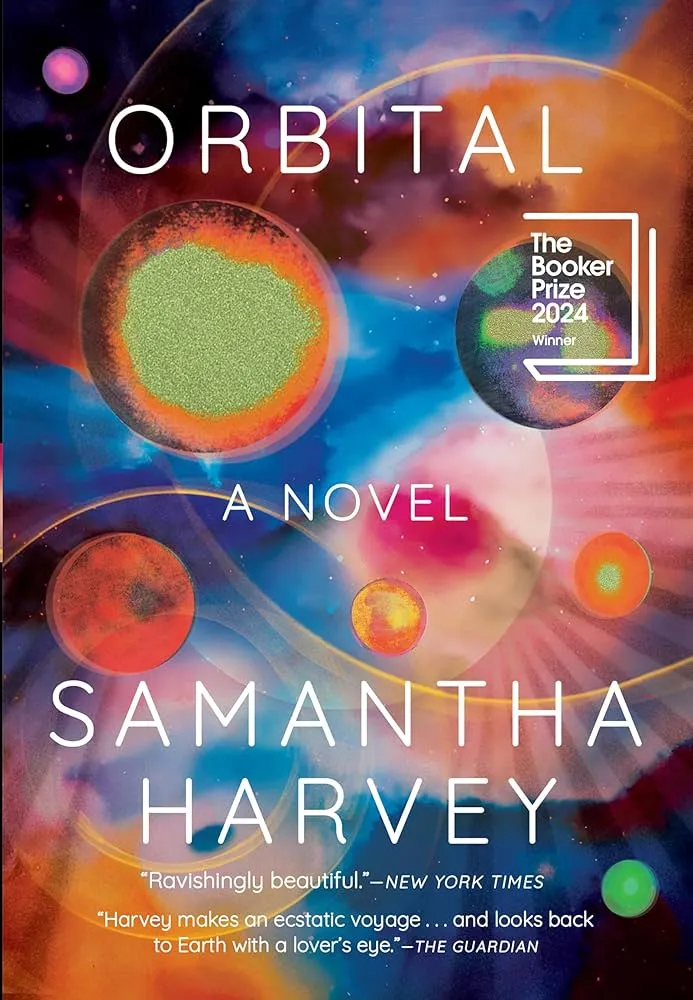Wonder writes imperialist | Review of Orbital by Samantha Harvey

I couldn't make myself finish this one, but upon learning more about the sociopolitical context surrounding this novel I'm not really regretting my decision to tap out. Orbital manages to give Interstellar an air of sophistication by comparison. Taking all of the novel's worn out pontificating about the true oneness of humanity (which it does in part by repeatedly ignoring Russia's unjustifiable occupation of Urkainian and Ainu land), we're left with something akin to a thinly veiled socialist realism: "I wanted to write about our human occupation of low earth orbit for the last quarter of a century – not as sci-fi but as realism," says Samantha Harvey (emphasis my own) during an interview following Orbital being longlisted for 2024's Booker Prize, which it would go on to win.
My vulgarity aside, in some sense I might be less disdainful of Orbital if I was under the impression that Harvey was intentionally pushing a subtle propaganda piece. Instead, the sophomoric musings of the novel's narrator and cast—shrouded in line after line of cute yet ultimately vapid prose—to me indicate not malice on the part of the author, but rather an unfortunate naïveté. From now on I'll stick with Solaris for my fix of contemplations about life among the stars, thank you very much. (See, I don't think Soviet art is all bad!)